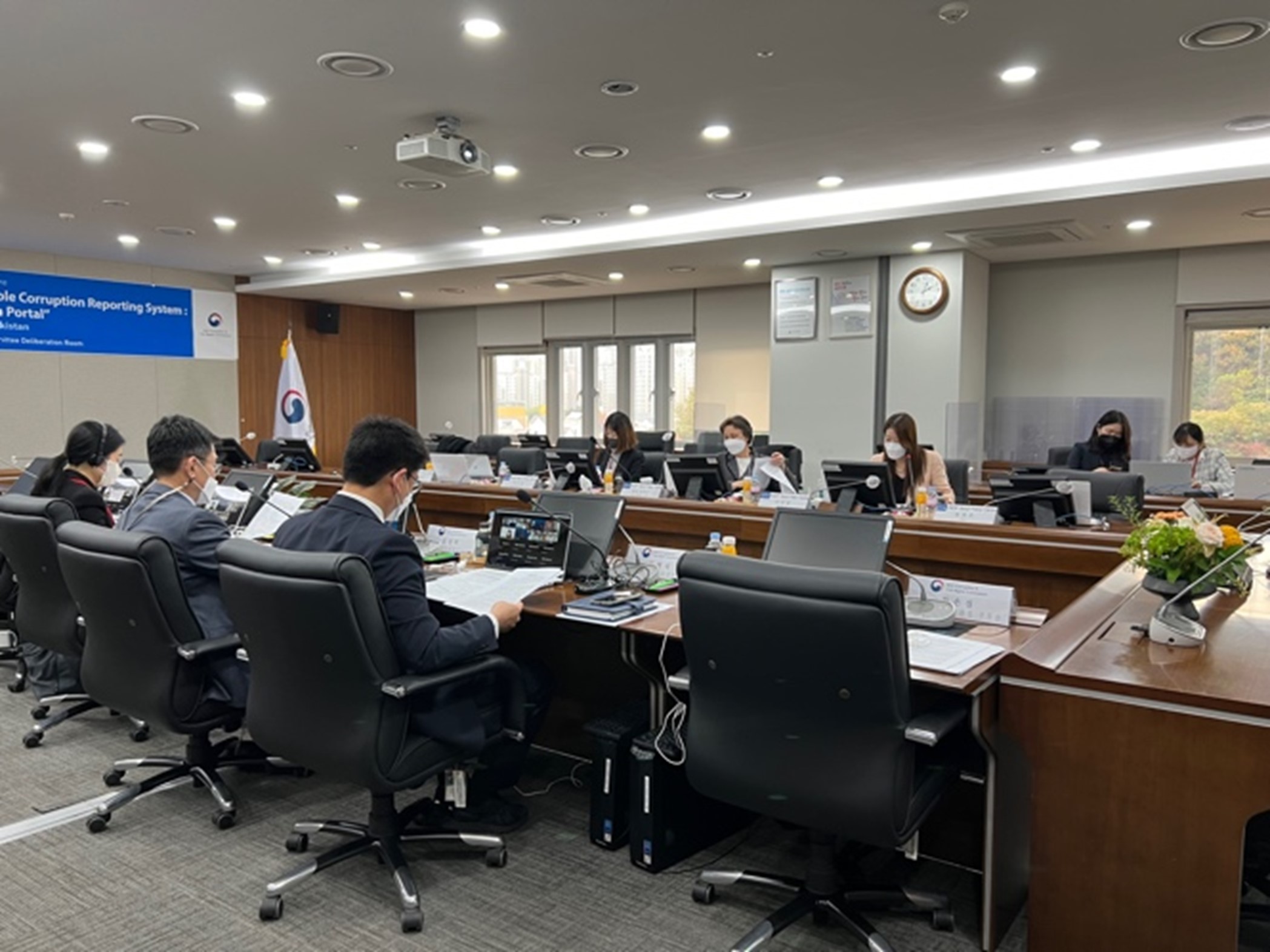Anti-corruption projects with Uzbekistan and Kosovo to share Korea’s corruption prevention toolkits successfully close
November 3, 2022

REFERENCES TO KOSOVO SHALL BE UNDERSTOOD TO BE IN THE CONTEXT OF UNITED NATIONS SECURITY COUNCIL RESOLUTION 1244 (1999).
UNDP Seoul Policy Centre (USPC) announced the successful closure of two SDG Partnerships on corruption prevention with UNDP Uzbekistan and UNDP Kosovo, in a webinar jointly convened with Korea’s Anti-Corruption & Civil Rights Commission (ACRC) on 3 November 2022.
The webinar was an occasion to share and celebrate USPC and its partners’ joint achievements in the two countries to fight corruption. Since 2015, USPC and ACRC have worked closely to support the establishment and implementation of anti-corruption policies and mechanisms worldwide. In this context, USPC partnered with UNDP Uzbekistan and UNDP Kosovo, who successfully adapted Korea’s anti-corruption experiences in their respective countries.
Electronic anti-corruption platform and assessment mechanism established in Uzbekistan through knowledge sharing on Korea’s Anti-Corruption Initiative Assessment tool
Mr. Nariman Muradasilov, Programme Analyst on Effective Governance at UNDP Uzbekistan Country Office, presented on the rewarding experience of establishing an anti-corruption mechanism inspired by Korea’s Anti-Corruption Initiative Assessment (AIA) tool. AIA evaluates the anti-corruption efforts implemented in public institutions by identifying, for example, the existence of an anti-corruption strategy, presence of an Integrity and Audit Division, and the provision of anti-corruption training for employees. Based on the evaluation, institutions are classified into tiers and the ranking is disclosed to the public. The AIA tool thereby motivates public institutions to fight against corruption, both voluntarily and continuously.
USPC and UNDP Uzbekistan first initiated the project to develop an AIA-like instrument in Tashkent in 2019. The project gained momentum in 2020 with the establishment of Uzbekistan’s new Anti-Corruption Agency (ACA). A working group was set up, which successfully created an implementation plan in May 2021 and drove the adoption of a Presidential Decree in January 2022 to institutionalize the AIA mechanism in Uzbekistan’s public sector. Furthermore, the project supported the digitalization of Uzbekistan with the establishment of ‘E-Anticor.uz’, an electronic platform designed to report incidents of corruption online. In early 2022, a monitoring and evaluation (M&E) system was established, and the ACA successfully piloted assessments in 26 agencies.
During the webinar, the M&E system, indicators and processes were presented to USPC and ACRC. Results of the pilot assessment were made public, which effectively bolstered agencies’ willingness to strengthen their anti-corruption endeavors. Mr. Muradasilov emphasized that it was the Uzbek government and ACA’s commitment, as well as technical and advisory support from USPC and ACRC, that led to outstanding achievements.
“The clear will and interest of national partners, the constant and effective support and assistance from the Seoul Policy Centre, the selfless work of the project and agency team have become real drivers of success.”
– Mr. Nariman Muradasilov, Programme Analyst on Effective Governance, UNDP Uzbekistan
Legal framework for anti-corruption in Kosovo enhanced through learning and training sessions on Korea’s Corruption Risk Assessment tool
Mr. Mato Meyer, Chief Technical Advisor at UNDP Kosovo Country Office, demonstrated how USPC and UNDP Kosovo’s collaboration enhanced the legal framework and mechanisms against corruption in Kosovo. Indeed, USPC and UNDP Kosovo worked closely together since 2017 to strengthen the capacities of Kosovo’s Agency for the Prevention of Corruption (APC) and to establish an instrument that benchmarks Korea’s Corruption Risk Assessment (CRA). Korea’s CRA is a system for corruption proofing of the legislation. It enables identification of corruption risks in bills, laws and regulations during the legislation process. ACRC reduced corruption risks with this tool, by suggesting where and how to make amendments to prevent perils.
Mr. Meyer provided an overview of why and how UNDP Kosovo chose to refer to Korea’s CRA. Kosovo came across the CRA tool while seeking an advanced system for reducing legal ambiguities and loopholes that could potentially result in corruption. ACRC’s CRA was appealing as it was globally recognized as a standard that directly tackles substantial and structural issues rather than just linguistic vagueness. Mr. Meyer appreciated USPC for facilitating interactions between officials of the Republic of Korea and Kosovo, for instance, by hosting webinars or assisting study visits from Kosovo to Korea.
“The true value provided by UNDP Seoul Policy Centre was its ability to mobilize Korean officials to share their knowledge, and coach and advise our beneficiaries.”
– Mr. Mato Meyer, Chief Technical Advisor, UNDP Kosovo
UNDP Kosovo successfully established a unit for legislation corruption proofing within Kosovo’s APC and institutionalized a corruption proofing instrument by adopting Korea’s methodology, checklist and templates. Mr. Meyer presented to USPC and ACRC the legal basis for establishing the legislation corruption proofing system, as well as the criteria used for the corruption proofing system in Kosovo.
Moreover, UNDP Kosovo and the APC piloted this mechanism in the Law No. 06/L-049 on Scientific Innovation and Transfer of Knowledge and Technology, which thus attested to CRA’s implementation capacity.
The webinar concluded with the acknowledgment of mutual efforts by Ms. Ahjung Lee, Policy Specialist and Governance Portfolio Manager of USPC. Ms. Lee thanked all partners for their persistent engagement and endeavors. USPC and its partners committed to sustain their efforts to fight corruption, for instance, via a partnership for the digitalization of corruption reporting mechanisms, inspired by Korea’s ‘Clean Portal’ (corruption and public interest violation reporting system).
* UNDP Seoul Policy Centre (USPC) shares Korea’s tested-and-proven policy tools with other countries through SDG Partnerships. SDG Partnerships provide a combination of support, including partnership development with Korean institutions, seed funding, technical assistance and policy advisory services. It utilizes UNDP’s global policy network of country offices and the policy expertise and know-how of partner organizations such as ACRC of the Republic of Korea.

 Locations
Locations



